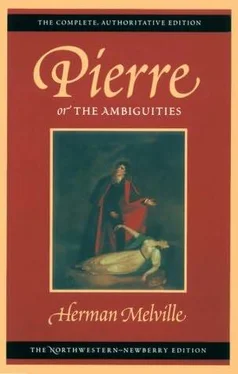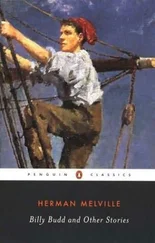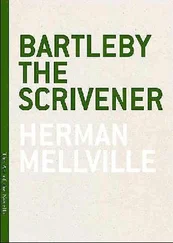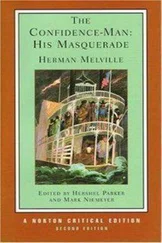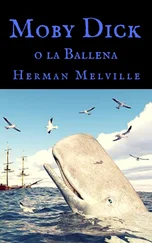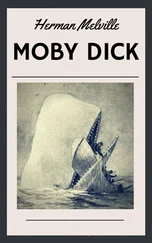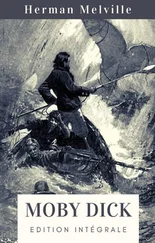Herman Melville - Pierre, Or the Ambiguities
Здесь есть возможность читать онлайн «Herman Melville - Pierre, Or the Ambiguities» весь текст электронной книги совершенно бесплатно (целиком полную версию без сокращений). В некоторых случаях можно слушать аудио, скачать через торрент в формате fb2 и присутствует краткое содержание. Жанр: Классическая проза, на английском языке. Описание произведения, (предисловие) а так же отзывы посетителей доступны на портале библиотеки ЛибКат.
- Название:Pierre, Or the Ambiguities
- Автор:
- Жанр:
- Год:неизвестен
- ISBN:нет данных
- Рейтинг книги:4 / 5. Голосов: 1
-
Избранное:Добавить в избранное
- Отзывы:
-
Ваша оценка:
- 80
- 1
- 2
- 3
- 4
- 5
Pierre, Or the Ambiguities: краткое содержание, описание и аннотация
Предлагаем к чтению аннотацию, описание, краткое содержание или предисловие (зависит от того, что написал сам автор книги «Pierre, Or the Ambiguities»). Если вы не нашли необходимую информацию о книге — напишите в комментариях, мы постараемся отыскать её.
Pierre, Or the Ambiguities — читать онлайн бесплатно полную книгу (весь текст) целиком
Ниже представлен текст книги, разбитый по страницам. Система сохранения места последней прочитанной страницы, позволяет с удобством читать онлайн бесплатно книгу «Pierre, Or the Ambiguities», без необходимости каждый раз заново искать на чём Вы остановились. Поставьте закладку, и сможете в любой момент перейти на страницу, на которой закончили чтение.
Интервал:
Закладка:
Now, this Cenci and "the Stranger" were hung at a good elevation in one of the upper tiers; and, from the opposite walls, exactly faced each other; so that in secret they seemed pantomimically talking over and across the heads of the living spectators below.
With the aspect of the Cenci every one is familiar. "The Stranger" was a dark, comely, youthful man's head, portentously looking out of a dark, shaded ground, and ambiguously smiling. There was no discoverable drapery; the dark head, with its crisp, curly, jetty hair, seemed just disentangling itself from out of curtains and clouds. But to Isabel, in the eye and on the brow, were certain shadowy traces of her own unmistakable likeness; while to Pierre, this face was in part as the resurrection of the one he had burnt at the inn. Not that the separate features were the same; but the pervading look of it, the subtler interior keeping of the entirety, was almost identical; still, for all this, there was an unequivocal aspect of foreignness, of Europeanism, about both the face itself and the general painting.
"Is it? is it? can it be?" whispered Isabel, intensely.
Now, Isabel knew nothing of the painting which Pierre had destroyed. But she solely referred to the living being who- under the designation of her father-had visited her at the cheerful house to which she had been removed during childhood from the large and unnamable one by the pleasant woman in the coach. Without doubt-though indeed she might not have been at all conscious of it in her own mystic mind- she must have somehow vaguely fancied, that this being had always through life worn the same aspect to every body else which he had to her, for so very brief an interval of his possible existence. Solely knowing him-or dreaming of him, it may have been-under that one aspect, she could not conceive of him under any other. Whether or not these considerations touching Isabel's ideas occurred to Pierre at this moment is very improbable. At any rate, he said nothing to her, either to deceive or undeceive, either to enlighten or obscure. For, indeed, he was too much riveted by his own far-interior emotions to analyze now the cotemporary ones of Isabel. So that there here came to pass a not unremarkable thing: for though both were intensely excited by one object, yet their two minds and memories were thereby directed to entirely different contemplations; while still each, for the time-however unreasonably-might have vaguely supposed the other occupied by one and the same contemplation. Pierre was thinking of the chair-portrait: Isabel, of the living face. Yet Isabel's fervid exclamations having reference to the living face, were now, as it were, mechanically responded to by Pierre, in syllables having reference to the chair-portrait. Nevertheless, so subtile and spontaneous was it all, that neither perhaps ever afterward discovered this contradiction; for, events whirled them so rapidly and peremptorily after this, that they had no time for those calm retrospective reveries indispensable perhaps to such a discovery.
"Is it? is it? can it be?" was the intense whisper of Isabel.
"No, it can not be, it is not," replied Pierre; "one of the wonderful coincidences, nothing more."
"Oh, by that word, Pierre, we but vainly seek to explain the inexplicable. Tell me: it is! it must be! it is wonderful!"
"Let us begone; and let us keep eternal silence," said Pierre, quickly; and, seeking Lucy, they abruptly left the place; as before, Pierre, seemingly unwilling to be accosted by any one he knew, or who knew his companions, unconsciously accelerating their steps while forced for a space to tread the thoroughfares.
II
As they hurried on, Pierre was silent; but wild thoughts were hurrying and shouting in his heart. The most tremendous displacing and revolutionizing thoughts were upheaving in him, with reference to Isabel; nor-though at the time he was hardly conscious of such a thing-were these thoughts wholly unwelcome to him.
How did he know that Isabel was his sister? Setting aside Aunt Dorothea's nebulous legend, to which, in some shadowy points, here and there Isabel's still more nebulous story seemed to fit on, — though but uncertainly enough-and both of which thus blurredly conjoining narrations, regarded in the unscrupulous light of real naked reason, were any thing but legitimately conclusive; and setting aside his own dim reminiscence of his wandering father's death-bed; (for though, in one point of view, those reminiscences might have afforded some degree of presumption as to his father's having been the parent of an unacknowledged daughter, yet were they entirely inconclusive as to that presumed daughter's identity; and the grand point now with Pierre was, not the general question whether his father had had a daughter, but whether, assuming that he had had, Isabel, rather than any other living being, was that daughter;)- and setting aside all his own manifold and inter-enfolding mystic and transcendental persuasions, — originally born, as he now seemed to feel, purely of an intense procreative enthusiasm:-an enthusiasm no longer so all-potential with him as of yore; setting all these aside, and coming to the plain, palpable facts, — how did he know that Isabel was his sister? Nothing that he saw in her face could he remember as having seen in his father's. The chair-portrait, that was the entire sum and substance of all possible, rakable, downright presumptive evidence, which peculiarly appealed to his own separate self. Yet here was another portrait of a complete stranger-a European; a portrait imported from across the seas, and to be sold at public auction, which was just as strong an evidence as the other. Then, the original of this second portrait was as much the father of Isabel as the original of the chair-portrait. But perhaps there was no original at all to this second portrait; it might have been a pure fancy-piece; to which conceit, indeed, the uncharacterizing style of the filling-up seemed to furnish no small testimony.
With such bewildering meditations as these in him, running up like clasping waves upon the strand of the most latent secrecies of his soul, and with both Isabel and Lucy bodily touching his sides as he walked; the feelings of Pierre were entirely untranslatable into any words that can be used.
Of late to Pierre, much more vividly than ever before, the whole story of Isabel had seemed an enigma, a mystery, an imaginative delirium; especially since he had got so deep into the inventional mysteries of his book. For he who is most practically and deeply conversant with mysticisms and mysteries; he who professionally deals in mysticisms and mysteries himself; often that man, more than any body else, is disposed to regard such things in others as very deceptively bejuggling; and likewise is apt to be rather materialistic in all his own merely personal notions (as in their practical lives, with priests of Eleusinian religions), and more than any other man, is often inclined, at the bottom of his soul, to be uncompromisingly skeptical on all novel visionary hypotheses of any kind. It is only the no-mystics, or the half-mystics, who, properly speaking, are credulous. So that in Pierre was presented the apparent anomaly of a mind, which by becoming really profound in itself, grew skeptical of all tendered profundities; whereas, the contrary is generally supposed.
By some strange arts, Isabel's wonderful story might have been, some way, and for some cause, forged for her, in her childhood, and craftily impressed upon her youthful mind; which so-like a slight mark in a young tree-and now enlargingly grown with her growth, till it had become this immense staring marvel. Tested by any thing real, practical, and reasonable, what less probable, for instance, than that fancied crossing of the sea in her childhood, when upon Pierre's subsequent questioning of her, she did not even know that the sea was salt.
Читать дальшеИнтервал:
Закладка:
Похожие книги на «Pierre, Or the Ambiguities»
Представляем Вашему вниманию похожие книги на «Pierre, Or the Ambiguities» списком для выбора. Мы отобрали схожую по названию и смыслу литературу в надежде предоставить читателям больше вариантов отыскать новые, интересные, ещё непрочитанные произведения.
Обсуждение, отзывы о книге «Pierre, Or the Ambiguities» и просто собственные мнения читателей. Оставьте ваши комментарии, напишите, что Вы думаете о произведении, его смысле или главных героях. Укажите что конкретно понравилось, а что нет, и почему Вы так считаете.
